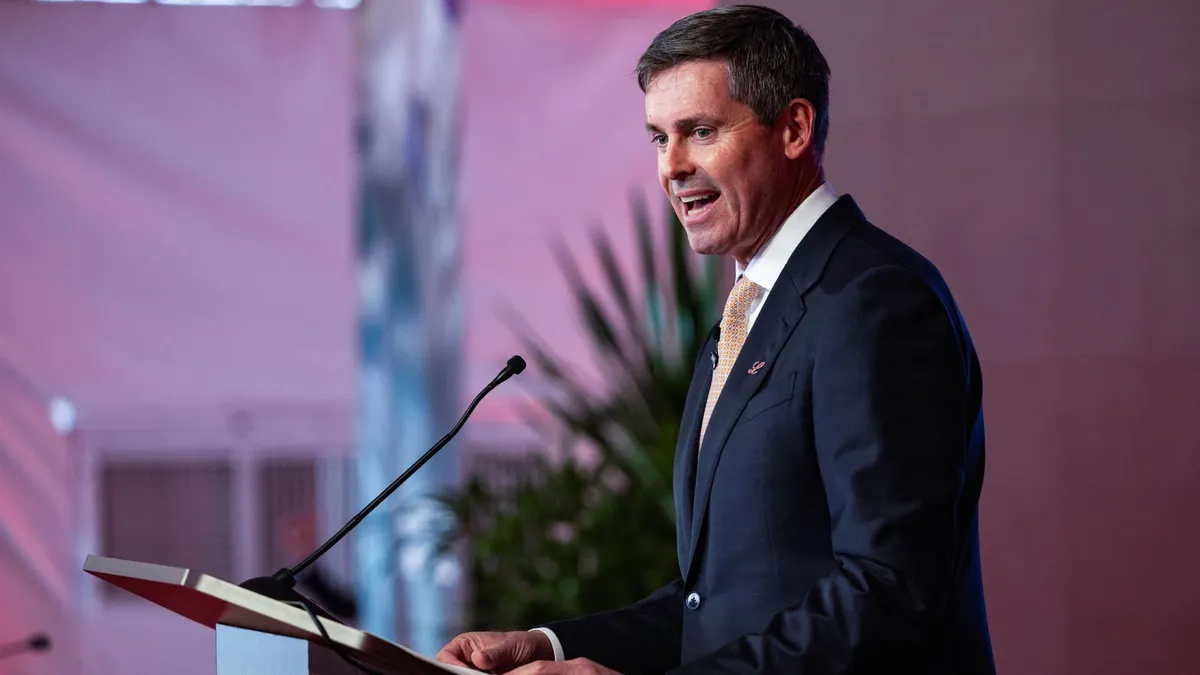
Eli Lilly reported impressive third-quarter earnings and revenue that surpassed estimates, prompting the company to raise its full-year outlook significantly. This boost comes as demand for its blockbuster weight loss drug, Zepbound, and diabetes treatment, Mounjaro, continues to soar. Following the announcement, shares of Eli Lilly rose by 5% in premarket trading on Thursday.
The pharmaceutical giant has adjusted its fiscal 2025 revenue expectations to a range of $63 billion to $63.5 billion, an increase from its earlier guidance of $60 billion to $62 billion. Additionally, Eli Lilly anticipates full-year adjusted profits to be between $23 and $23.70 per share, up from the previous forecast of $21.75 to $23 per share. The company noted that this guidance takes into account the existing tariffs under President Donald Trump's administration, but does not factor in any potential future levies on pharmaceuticals imported into the U.S.
Mounjaro generated a staggering $6.52 billion in revenue during the quarter, marking a remarkable 109% increase from the same period last year. This figure far exceeded the $5.51 billion that analysts had projected, as reported by StreetAccount. Meanwhile, Zepbound, which launched roughly two years ago, brought in $3.57 billion in revenue for the third quarter. This represents an impressive 184% growth compared to the previous year and slightly surpassed Wall Street's expectation of $3.5 billion.
For the third quarter, Eli Lilly reported earnings per share of $7.02 (adjusted), compared to the expected $5.69. The total revenue for the quarter reached $17.60 billion, significantly higher than the anticipated $16.01 billion. This remarkable performance reflects a 54% increase in revenue year-over-year, with U.S. sales rising by 45% to $11.30 billion. The surge in sales was primarily driven by a 60% increase in the volume of prescriptions and units sold for its leading products, Mounjaro and Zepbound.
Eli Lilly's strong results underscore its competitive advantage in the rapidly growing market for GLP-1 drugs, which are used for treating obesity and diabetes. Over the past year, the company has captured a significant market share, bolstered by its effective weight loss and diabetes injections, as well as its direct-to-consumer sales strategies. To further enhance access to Zepbound, Eli Lilly recently partnered with Walmart to facilitate in-store pickup of discounted vials for cash-paying patients.
Looking ahead, Eli Lilly is focusing on its experimental obesity pill, orforglipron, which is expected to solidify its market dominance, especially as competitors like Novo Nordisk and other pharmaceutical companies are racing to develop their own innovative treatments. On the same day, Novo Nordisk made headlines by launching a rival bid for U.S. obesity biotech company Metsera, outbidding Pfizer in a strategic move to catch up with Eli Lilly in the competitive landscape of obesity treatments.